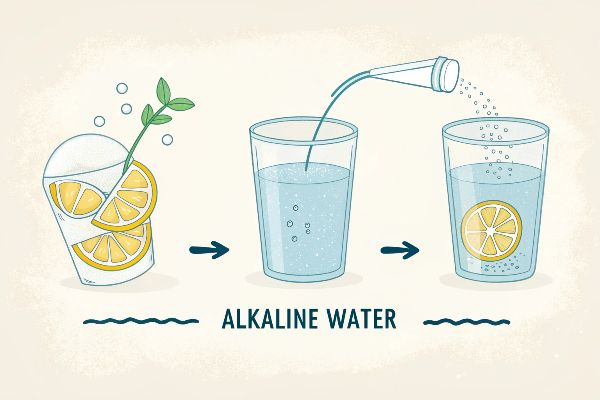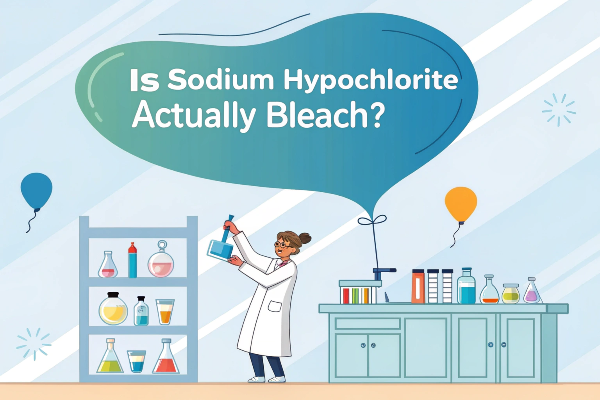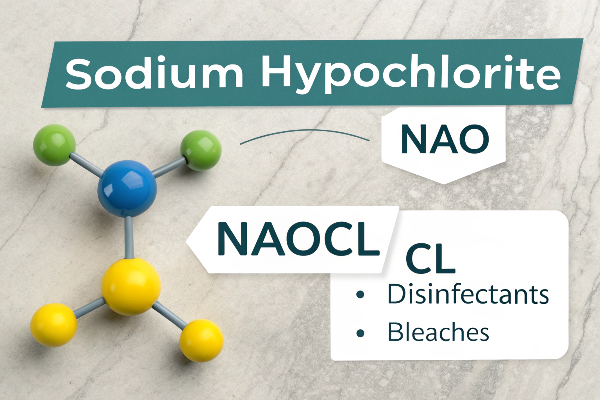Struggling with inefficient wastewater treatment, costly hydrogen production, or unsustainable chemical synthesis? Traditional methods often fall short.
Titanium anodes offer a revolutionary solution. Their unique properties enable highly efficient and durable electrochemical processes, transforming wastewater treatment, hydrogen production, and electrochemical synthesis.
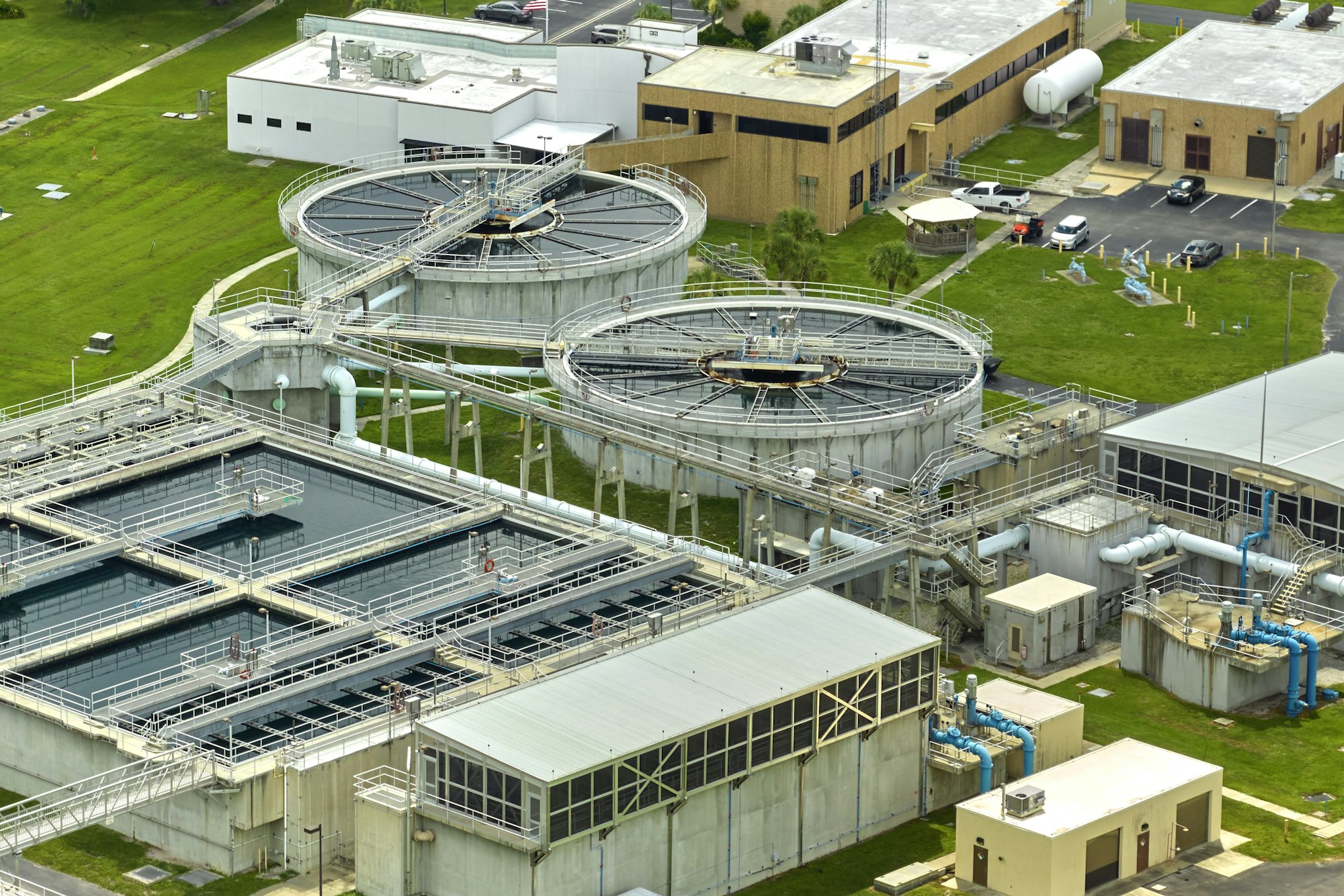
But are these advanced anodes the right choice for every application? Let’s dive into the cutting-edge uses and uncover the full potential of titanium anodes.
What are the specific performance advantages of titanium anodes over traditional electrode materials (like graphite or lead) in these cutting-edge applications?
Facing persistent issues with electrode degradation and low efficiency in your electrochemical processes? Traditional materials often can’t keep up.
Titanium anodes1 boast superior electrocatalytic activity2, exceptional corrosion resistance3, and robust dimensional stability, outperforming graphite and lead in demanding applications like wastewater treatment and hydrogen production.
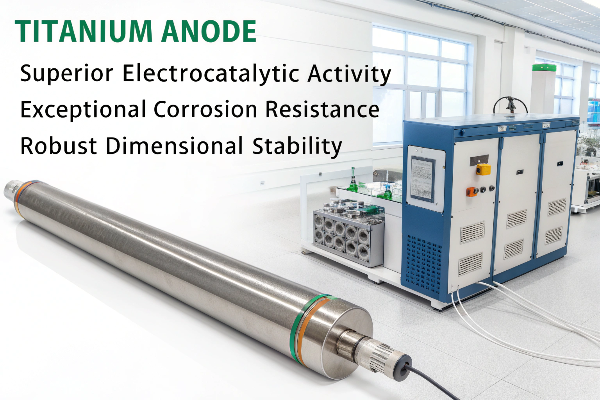
Titanium Anodes: A Superior Choice
Titanium anodes, particularly those with specialized coatings like iridium-tantalum oxide, exhibit significantly enhanced performance compared to traditional materials. Let’s break down the key advantages:
| Feature | Titanium Anode | Graphite Electrode | Lead Electrode |
|---|---|---|---|
| Electrocatalytic Activity | High; lower overpotential for reactions | Moderate; higher overpotential | Moderate; prone to passivation |
| Corrosion Resistance | Excellent in harsh environments | Good, but susceptible to chemical attack | Poor; readily corrodes in acidic/alkaline media |
| Dimensional Stability | Maintains shape and size under stress | Can become brittle and crumble over time | Soft and easily deformed |
| Environmental Impact | Non-toxic and environmentally friendly | Generally safe, but can release carbon particles | Toxic; poses environmental and health risks |
| Lifespan | Significantly longer | Moderate | Short |
My experience: I’ve seen firsthand the difference titanium anodes make. In one project, switching from lead anodes to titanium dramatically improved the system.
What are the limitations or challenges associated with using titanium anodes in these specific applications, and how can they be mitigated?
Are you concerned about potential drawbacks or obstacles when implementing titanium anodes? It’s crucial to consider all angles.
While titanium anodes offer significant advantages, challenges like coating poisoning4 in complex wastewater and accelerated wear5 at high current densities in hydrogen production exist. Optimization and maintenance are key.
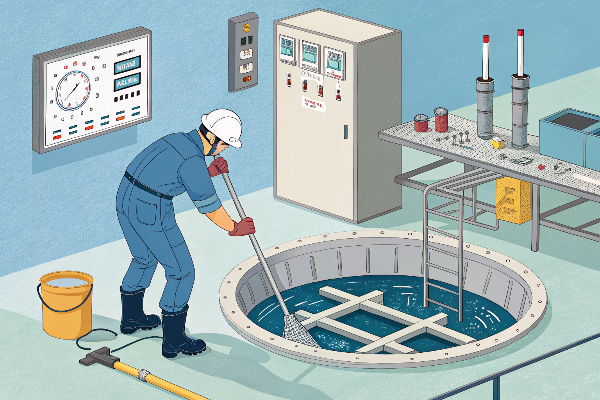
Addressing the Challenges
While the benefits are clear, it’s crucial to address potential limitations. Here’s a breakdown of common challenges and mitigation strategies:
| Application | Challenge | Mitigation Strategies |
|---|---|---|
| Wastewater Treatment | Coating poisoning from complex wastewater. | Pre-treatment of wastewater, optimized coating formulation6, periodic cleaning. |
| Hydrogen Production | Accelerated wear at high current densities. | Optimize current density, use advanced coating materials, improve electrolyte flow. |
| Electrochemical Synthesis | Adsorption of organic matter affecting selectivity. | Optimize reaction conditions, use pulsed current, develop specialized coatings for specific reactions. |
Using specific operating parameters can affect performance and lifespan.
What are the long-term operational costs (including maintenance and replacement) associated with using titanium anodes in these applications?
Worried about the long-term financial implications of adopting titanium anode technology? It’s essential to consider the full picture.
While the initial investment might be higher, titanium anodes often lead to lower overall costs due to their extended lifespan, reduced maintenance, and superior energy efficiency compared to traditional electrodes.
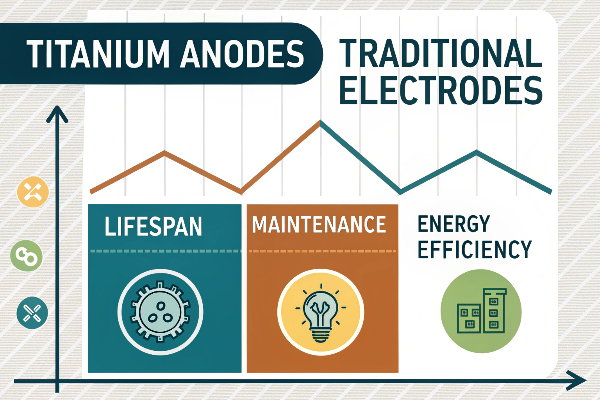
Analyzing the Costs
A comprehensive cost analysis should include:
- Initial Investment: The cost of the anodes themselves and any necessary installation modifications.
- Operating Costs: Primarily electricity consumption, which is often lower with efficient titanium anodes.
- Maintenance Costs: Periodic cleaning, inspection, and potential coating repairs. This is typically less frequent than with traditional anodes.
- Replacement Costs: Titanium anodes have a significantly longer lifespan, reducing replacement frequency.
Here’s a simplified comparison:
| Cost Factor | Titanium Anode | Traditional Anode (Graphite/Lead) |
|---|---|---|
| Initial Investment | Higher | Lower |
| Operating Cost | Lower (due to efficiency) | Higher |
| Maintenance Cost | Lower | Higher |
| Replacement Frequency | Significantly Lower | Higher |
| Overall Lifetime Cost | Potentially Lower | Potentially Higher |
Conclusion
Titanium anodes represent a significant advancement in electrochemical technologies. Their performance advantages, despite some limitations, and potential for long-term cost savings make them a compelling choice for wastewater treatment7, hydrogen generation8, and advanced electrochemical applications.
-
Explore the advantages of Titanium anodes to understand their impact on efficiency and longevity in various applications. ↩
-
Discover the electrocatalytic activity of Titanium anodes and how it leads to improved efficiency in electrochemical processes. ↩
-
Learn about the superior corrosion resistance of Titanium anodes and how it enhances performance in harsh environments. ↩
-
Understanding coating poisoning is essential for effective wastewater treatment. Explore this link to learn about solutions and best practices. ↩
-
Discover the factors leading to accelerated wear in titanium anodes and how to optimize their use in hydrogen production. ↩
-
Learn how optimized coating formulations can enhance the performance and longevity of titanium anodes in various applications. ↩
-
Learn how advanced electrochemical technologies improve wastewater treatment processes and their environmental impact. ↩
-
Discover the significance of Titanium anodes in enhancing hydrogen generation efficiency and sustainability. ↩



